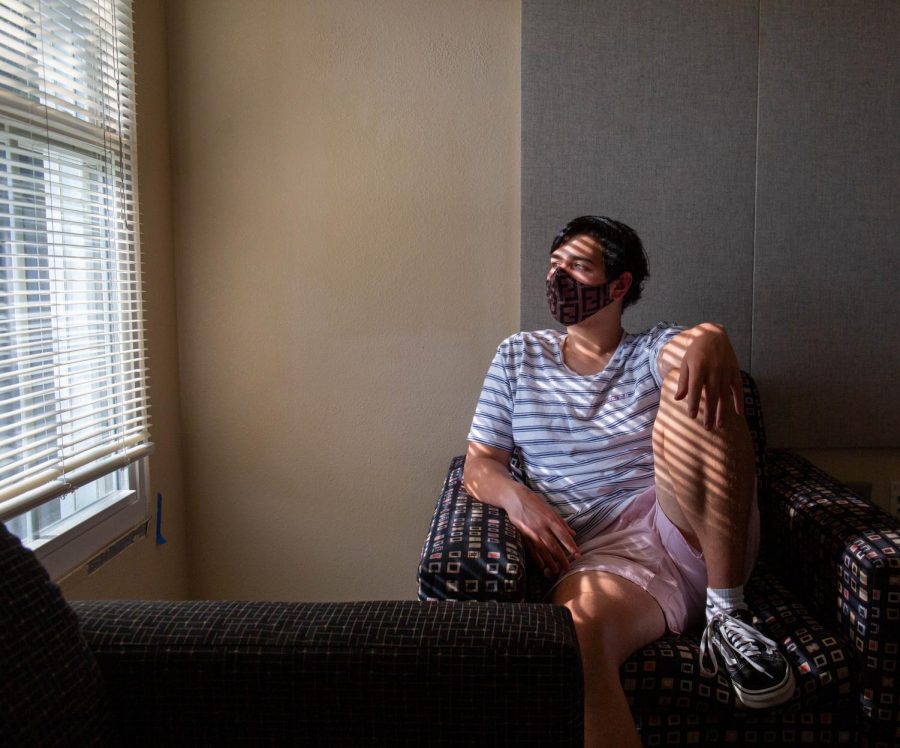ASUU Resolution in Support of Student Wellbeing During COVID-19 Passes
Freshman Michael Manhard takes a break from online classes in a common area at the University of Utah on Oct. 10, 2020. (Photo by Gwen Christopherson | Daily Utah Chronicle)
December 14, 2020
On Nov. 30, 2020, the ASUU Senate passed A Resolution in Support of Student Wellbeing in COVID-19.
This resolution was proposed because of the school situation created by the COVID-19 pandemic. Most classes at the U are being taught online in some capacity. A study done by Chegg stated that 58% of college students surveyed were “moderately,” “very,” or “extremely” worried about their own mental health during the pandemic.
“Around the time that we were meant to have fall break, I felt overwhelmed in a way that I haven’t before. I am a strong student, but I could not keep up with course work. My own mental health issues were flaring up in ways that made it very hard to function normally. I thought maybe it was just me, but every time I shared these feelings with a peer or even a faculty member, they would express the same sentiment,” said Maeve Wall, a second-year doctoral student in education culture and society.
The resolution also talks about how many students have expressed “burnout, fatigue, and significant concern about the Spring semester.”
“It is good to note that when it comes to student mental health, it is often worse off than reported, due to a stigma of looking or seeming ‘crazy’ when students are neurodivergent,” freshman psychology major Angel Serena Oluwalana said.
The resolution proposed a number of changes to help students feel better about the upcoming semesters.
“The stated resolution and proposed motion that has been put into place is an excellent idea and a step in the right direction when it comes to mental health for students at the University of Utah. The fact that the proposed motion was approved with no opposing votes also indicates that this change may be more than just, ‘a much-needed change’ but one that was well overdue.” Oluwalana said.
The resolution proposed nine actions that faculty should take into action for future semesters.
Some actions include making students aware of credit/no credit options, not assigning work on the week that is traditionally spring break, not requiring students to have their camera on during zoom calls and assigning work that matches the number of credit hours of the class.
It also suggests that “instructors should provide 3 ‘mental health days’ for students that can be taken off, similar to excused absences, in observance of their mental health and wellbeing.”
Winnie Jenkins, a junior anthropology and writing & rhetoric major, said that this resolution really means a lot to them because “as someone with anxiety my writing professor Christie Toth has been amazing working not just with me but with other students and late work. Having anxiety during a normal semester is hard enough, but having it during a COVID semester is basically a never-ending anxiety attack.”







